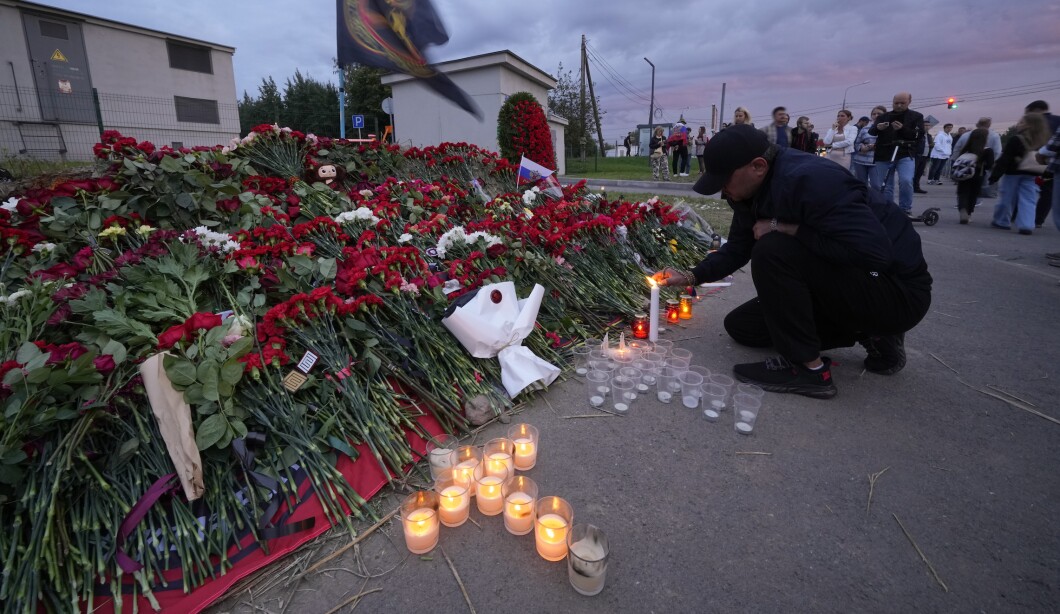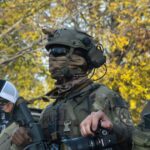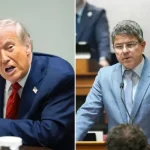
Russian paramilitary chief Yevgeny Prigozhin’s apparent assassination could light the fuse on another cycle of internal blood-letting despite Russian President Vladimir Putin’s desire to assert authority within the Russian system.
“Basically, you are creating another group of people who want revenge, again,” a senior European official observed. “So it’s not solving the root issues.”
NIKKI HALEY CLAIMED DEBATE SPOTLIGHT AMONG CROWD OF ‘SCREAMING MEN’
Prigozhin’s death prompted an outpouring of grief and anger by his devotees within the Wagner Group’s online publishing eco-system and at makeshift shrines in St. Petersburg, his hometown and the intended destination of his final flight from Moscow on Wednesday. Putin, who voiced his “sincere condolences” for the death of the Wagner brass, is widely perceived as having approved a move against Prigozhin in retaliation for his former ally’s abortive march on Moscow in June.
“The fact that our best soldiers died in battle is the will of God,” a Prigozhin-aligned Telegram channel wrote Thursday, per a translation from Politico’s Europe affiliate. “Probably whoever organized it thinks he’s won, but he hasn’t … if it’s a knife in the back, the motherland will survive but your fate as Judas is unenviable.”

That furious prognostication expressed a loyalty code that Prigozhin enforced with his own displays of ostentatious violence. The man once known as “Putin’s chef” gained prominence through a year of conflict in Russia’s full-scale campaign to overthrow Ukrainian President Volodymyr Zelensky. Wagner Group formations, battle tested during the Syrian civil war and swelled by recruits drawn from Russian prisons, gained a reputation for relative competence and brutality, and the sledgehammer emerged as an emblem of the war in Russian society after the Wagner Group fighters used the tool in a filmed execution of a Wagner Group deserter.
“I think this movie is called ‘A Dog’s Death to a Dog,’” Prigozhin said in November as video of the killing circulated on Twitter. “This show shows that the sledgehammer-ed [man] didn’t find happiness in Ukraine, but was met with unkind but fair people.”
That incident underscored Prigozhin’s emergence as a martial figure with a performative flair amid months of setbacks for the wider Russian military campaign. He continued to cultivate a reputation inside Russia for serious-minded commitment to the military tasks at hand, a public relations effort replete with public mockery of Russian Defense Minister Sergei Shoigu and other senior leaders, as the acrimony between factions of Russia’s power structures broke through the august facade of traditional Russian institutions.
“I don’t know whether the Taliban government could do this,” expatriate Russian economist Konstantin Sonin, a Putin critic now affiliated with the University of Chicago, told the Washington Examiner. “These sort of things happened in Afghanistan in the 90s, where they had … enemies, but ministers in the same cabinet.”
Those denunciations portended his eventual break with Moscow officialdom and his shocking yet short-lived uprising, which Putin deemed an “armed mutiny” but then agreed to overlook as part of a deal to avoid a bloody showdown in Moscow.
“It was pretty clear at the time that that was not likely to be a long-term solution … that long term, this is not workable,” Foreign Policy Research Institute senior fellow Rob Lee said late Wednesday on the Geopolitics Decanted podcast. “So, it’s not surprising that they took some kind of action.”
In Igor Girkin’s telling, the ultranationalist war hawk who was recently imprisoned for mocking Putin’s leadership, an assessment such as Sonin’s points to the right decade but the wrong country. Girkin downplayed the idea that Putin or other senior military leaders ordered Prigozhin’s death but gestured toward more mysterious malevolence inside Russia.
“Here we can talk about the ‘cleansing of key witnesses,’ about which there was not a sound in the media,” Girkin said in a statement through his attorney on social media. “It is yet another evidence of the further deepening of unrest in Russia. Prigozhin should have been tried, not eliminated, now he will not be able to testify. The dashing 90s are returning, and this is very dangerous and fraught.”
The public spectacle of Prigozhin’s death on Wednesday underscored, for Sonin and other Putin critics, the degeneracy of Russian institutions.
“I do not believe that Putin will ever restore order and these things will happen until he is gone,” Sonin said. “People who come after him … it will be them who will be rooting out these rogue security services, rogue Army people. Again, a normal state does not have these killer squads.”
CLICK HERE TO READ MORE FROM THE WASHINGTON EXAMINER
In the meantime, Putin appears to be living by the code that Prigozhin touted during his time in the sun.
“It just confirms how the prison culture is ruling there; that’s the way prison [disputes] are solved. … It’s absolutely prison culture,” the senior European official said. “The motivation is built on threatening [people], but with that, you are not getting 100% out of the people. You cannot even call them your people because you have such big differences between the factions.”





